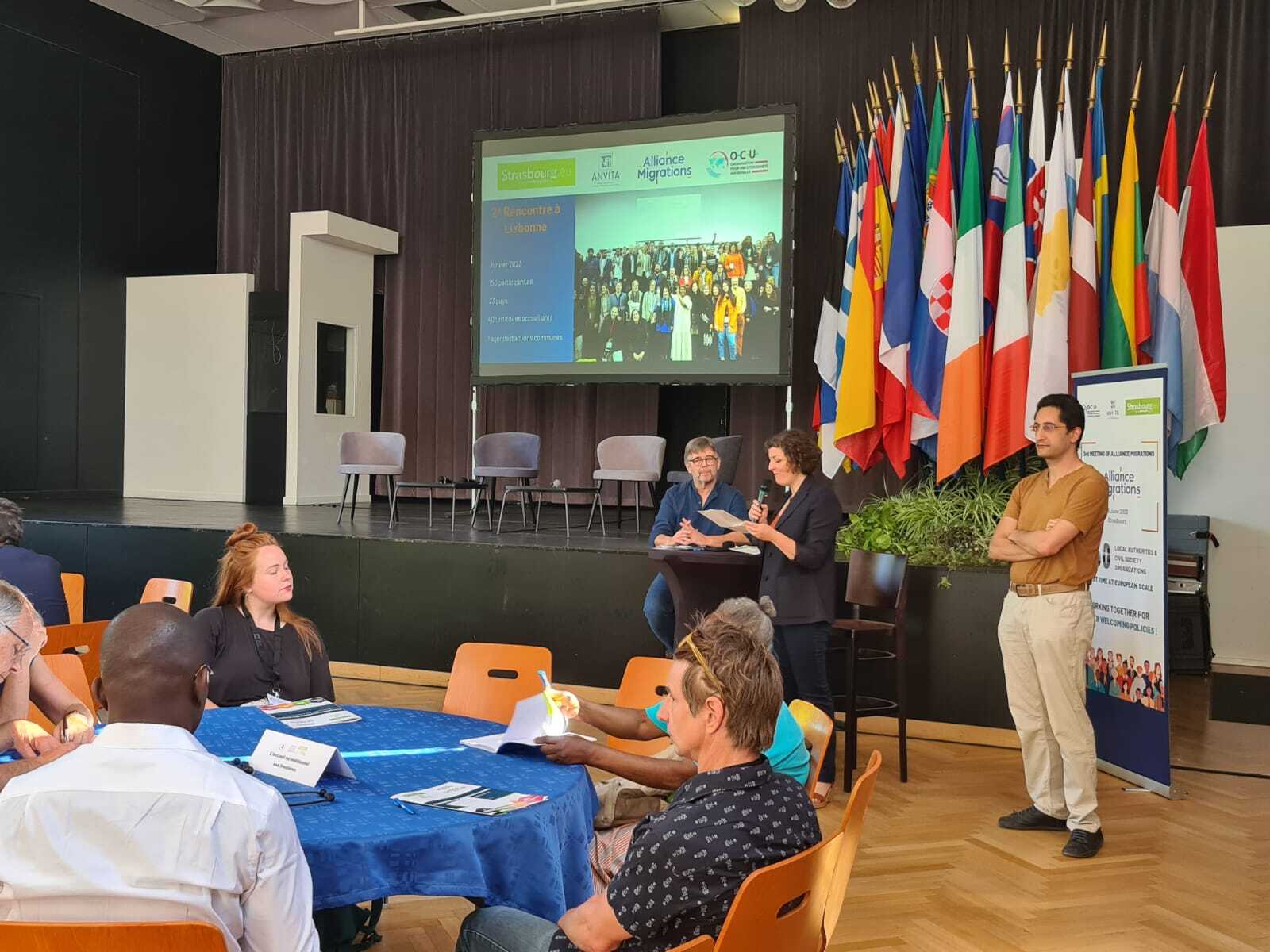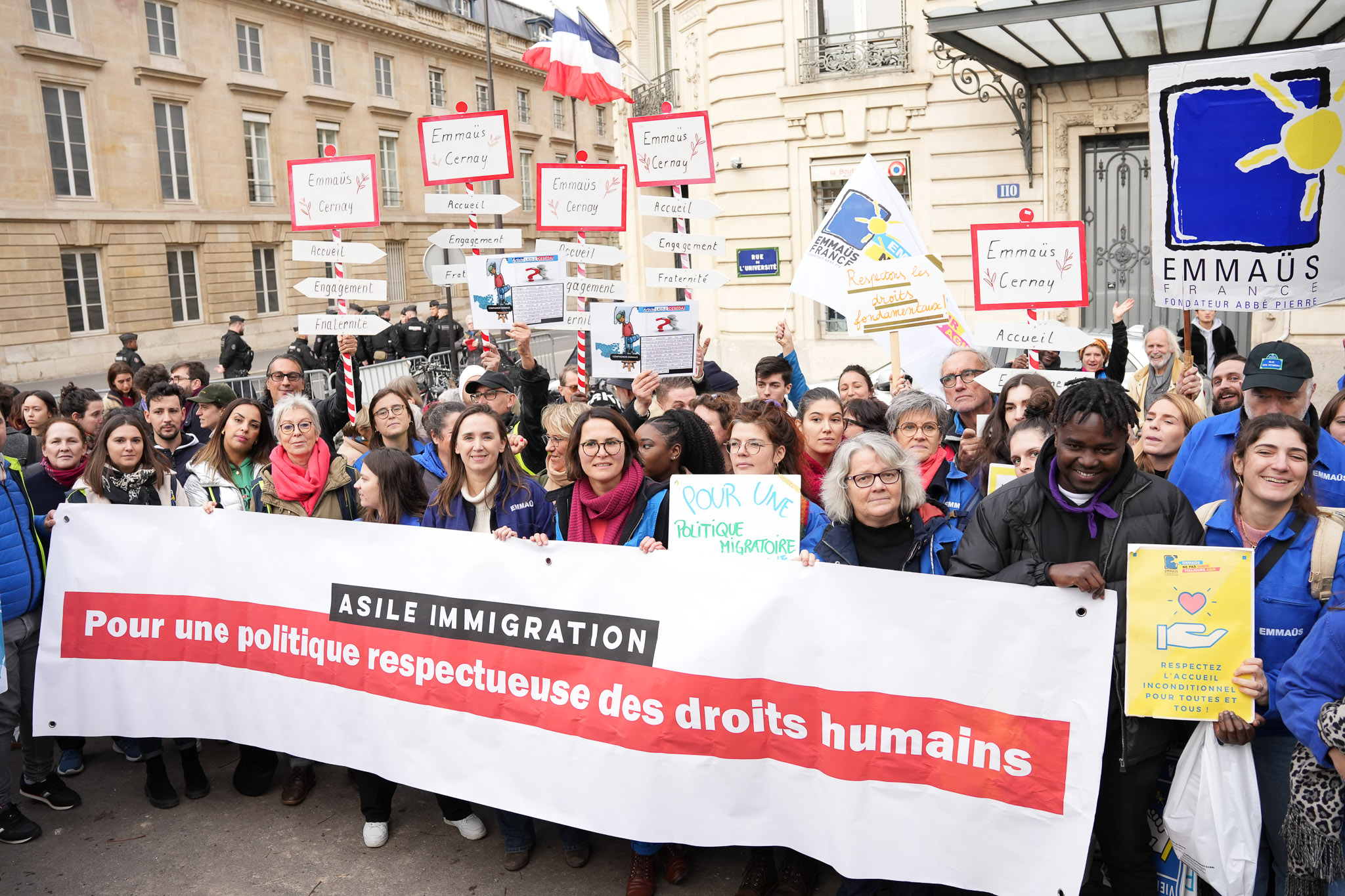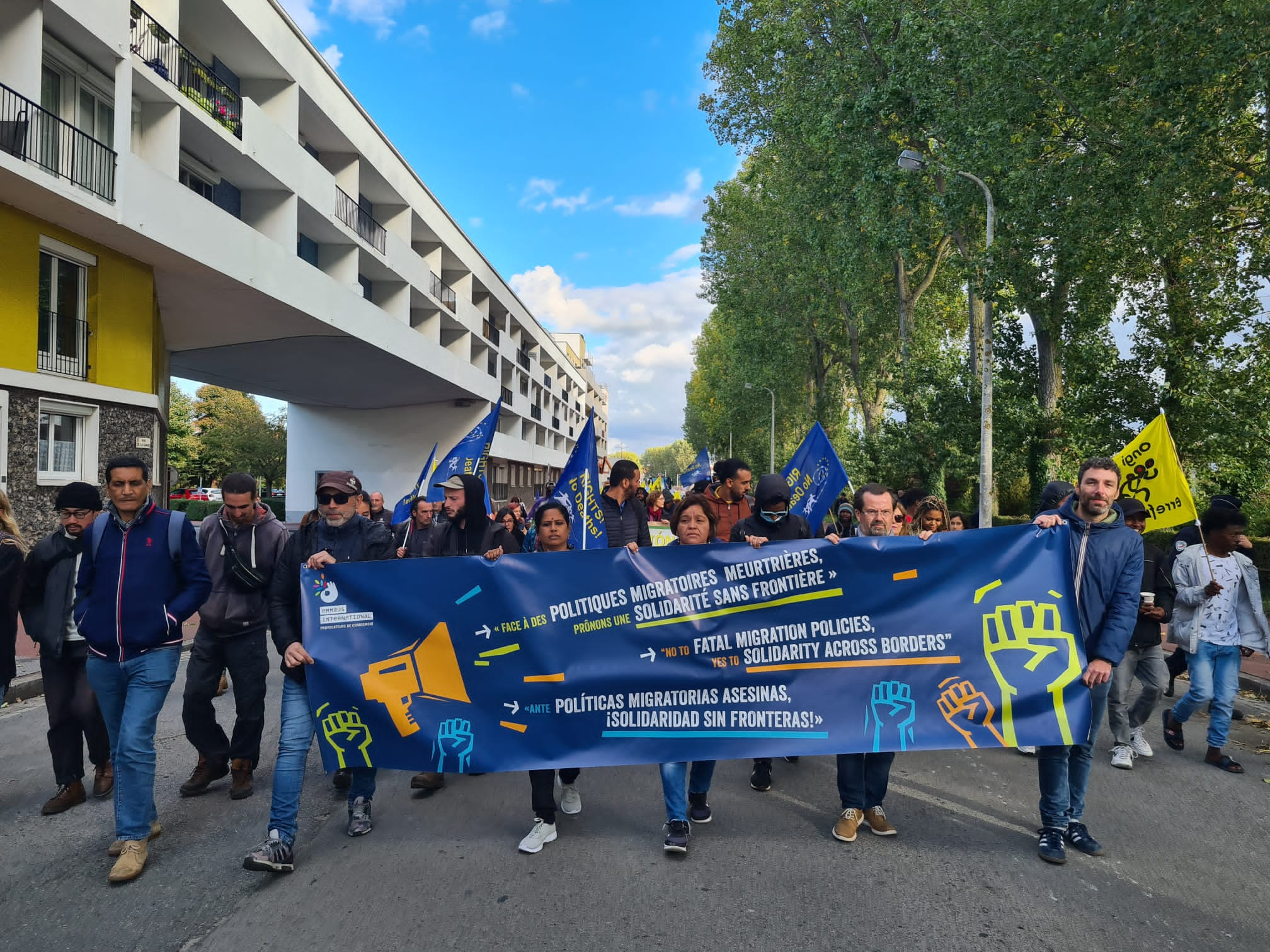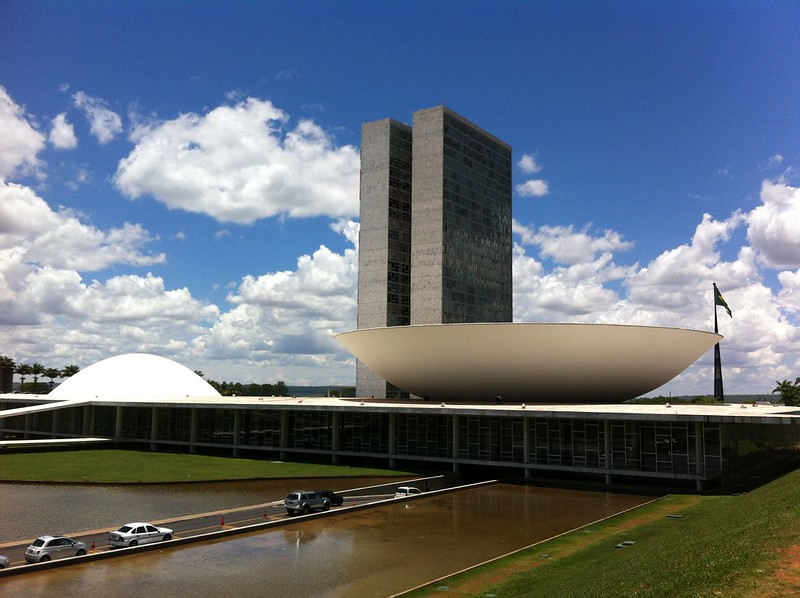In Strasbourg, a meeting with the Migration Alliance to improve reception and access to rights

In June 2023, European migration policies proved particularly deadly. At least 120 people lost their lives in shipwrecks, right on Europe’s doorstep. These deaths continue to pile up as European heads of state and governments remain totally indifferent, at no point ever questioning their migration policies. It was in light of this political context that local representatives and civil society organisations from a number of European countries gathered in Strasbourg on the 15th-16th of June, to meet with the Migration Alliance. This meeting, officially titled “Policies on Reception”, was an opportunity to meet local people involved in welcoming exiled persons, but equally an opportunity to call upon European decisionmakers and outline our collective desire to seriously change the current approach to migration.
Representatives and organisations were able to exchange openly during 12 different thematic roundtables all based on reception practices and access to rights. This was a very interesting opportunity, and it drew in everybody involved and interested in the subject. Several members of Emmaus France were also present in order to exchange on the OACAS agreement (organisme d’accueil communautaire et d’activités solidaires, which focuses on community reception and solidarity work), and the way exiled people are welcomed into Emmaus communities. They were also there to present the “100 for 1” housing initiative, and the work done by the Abbé Pierre foundation on housing issues in Europe.
Manifesto and initiatives map
At the end of these workshops, local organisations and collectives shared a “Manifesto for European policies based on rights and dignified reception” to several different representatives at European institutions. The 4 main demands of this manifesto are developing reception policies, protecting people, respecting everybody’s rights, and working together with the people we are helping.
>>> Manifesto for European policies based on rights and dignified reception <<<
This was also an opportunity for the Migration Alliance to present the launch of their initiatives map. This tool was created to increase visibility on and outline any common links between actions and work being done by local players that may inspire others. Through this map, the Alliance wants to encourage an exchange on practices, sharing of knowledge, and further involvement and mobilisation of local authorities and civil society organisations that are involved in the reception of migrants.
Another regional meeting is scheduled to take place in Brasilia, in Brazil, where Lula da Silva’s return as the Brazilian president makes us somewhat optimistic about the future of migration issues. On the 22nd of June, during a press conference in Italy, the Brazilian president said “we must have the courage to defend the free movement of humans, just in the same way that the free movement of money is allowed. […] People flee because they need to do so in order to survive […], so it makes absolute sense that if you were to find yourself in a situation of poverty, or of violence, then you would want to flee”. Lula da Silva was one of the first people to receive the universal citizenship passport, as issued by the Organisation for Universal Citizenship (OCU). Let us hope that his message, which stems from genuine political desire, ends up influencing other national leaders!
The Migration Alliance was founded in 2019, as a result of the Organisation for Universal Citizenship (OCU) and the National Association of Welcoming Cities and Territories (ANVITA)’s collective desire to build a long-lasting alliance for dialogue and cooperation between local organisations, authorities, and members of civil society. The issues they deal with include reception and exiled people’s access to rights. The Migration Alliance is convinced that exiled people, local representatives, and associations are the most equipped and suited to understanding the needs and policies that must be established – for this reason, the Alliance works hard all around the world to outline the best practices in reception and in access to rights, working collectively with local players. You can find out more here.


